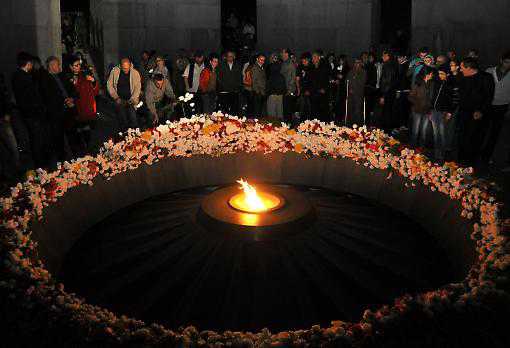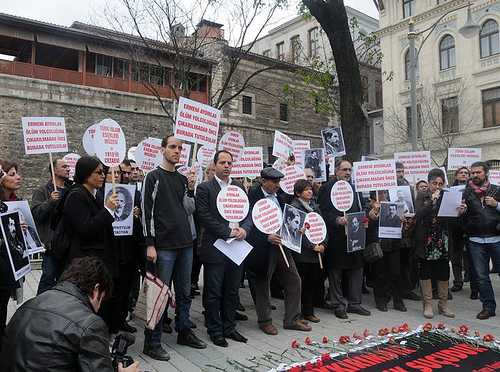It is now 98 years since 1.5m Armenians were systematically massacred. Recognising what happened is the only way to help us all move forward.
BY BENJAMIN ABTAN

It has been 98 years since – following a premeditated plan with a methodic implementation – one million and a half Armenians were massacred in the Ottoman Empire. The Armenian people were the victims of a genocide which would soon serve as a gruesome reference for those that followed.
Today in Turkey, the mere enunciation of this historical fact still provokes ferocious opposition, sometimes even physical threats. Genocide denial serves as an encouragement to racism and hate against Armenians and other non-Muslim minorities. Some want to pretend that acknowledging the reality of the Armenian Genocide is an attack on all Turkish people and on “Turkishness”. It is not: it is a step towards justice.
Several years ago, the genocide of Armenians began to be commemorated in Turkey itself. The participants are still few but their number grows every day despite an official discourse of genocide-denial. Today, those among us who have taken part in these commemorations in Turkey are calling for solidarity beyond borders.
This year on 24 April – the widely recognised starting date of the massacre – we ask citizens, civil society leaders, antiracist activists, intellectuals and artists, of Armenian and other diverse origins, in Turkey and across the world, to unite in calling for the historical fact of the Armenian Genocide to be recognised at last.
Our shared initiative is one of solidarity, of justice, and of democracy.
It is an initiative of solidarity between all who fight for historical truth. Today the divide is not between Turks and Armenians, but between those who struggle for the recognition of the Armenian Genocide, whatever their origins are and wherever they live, and those who promote denial. In a word, it is not a question of blood, but of ideas; not a question of origins, but of a common goal.
It is an initiative of justice. In the words of writer and Holocaust survivor Elie Wiesel, “Genocide kills twice, the second time by silence.” Denial, then, is the perpetuation of genocide. Fighting against denial is trying to quell the trauma in Armenian communities from one generation to another. It is not an end to this part of history – because when it comes to genocide, there is unfortunately no true end – but it offers new generations the opportunity to look together towards the future.
Finally, it is an initiative for democracy. Echoing writer and Buchenwald survivor Jorge Semprun’s frequent reminder, democracy requires vitality from civil society. Strengthening Turkish civil society by establishing bridges with the rest of the European civil society is strengthening democratic values, thus combating racism and promoting human rights, in Turkey as well as in the rest of Europe.
In solidarity, for justice and democracy, for the respect of the victims and their descendents, we will commemorate together the Armenian Genocide on 24 April, in Turkey.
Signed by:
Benjamin Abtan, President of the European Grassroots Antiracist Movement – EGAM
Cengiz Algan & Levent Sensever, Spokespeople for Durde! (Turkey)
Alexis Govciyan , European President & Nicolas Tavitian, Member of the Board of the Armenian General Benevolent Union – AGBU (Europe)
Meral Çildir, Member of the Board of Directors & Ayse Gunaysu, Member of the Commission against Racism and Discrimination of the Turkish Association for Human Rights – IHD (Turkey)





